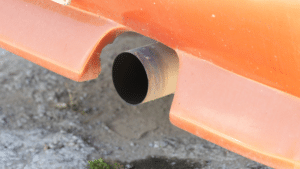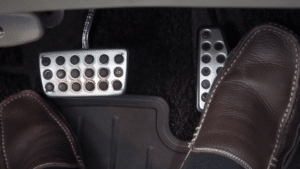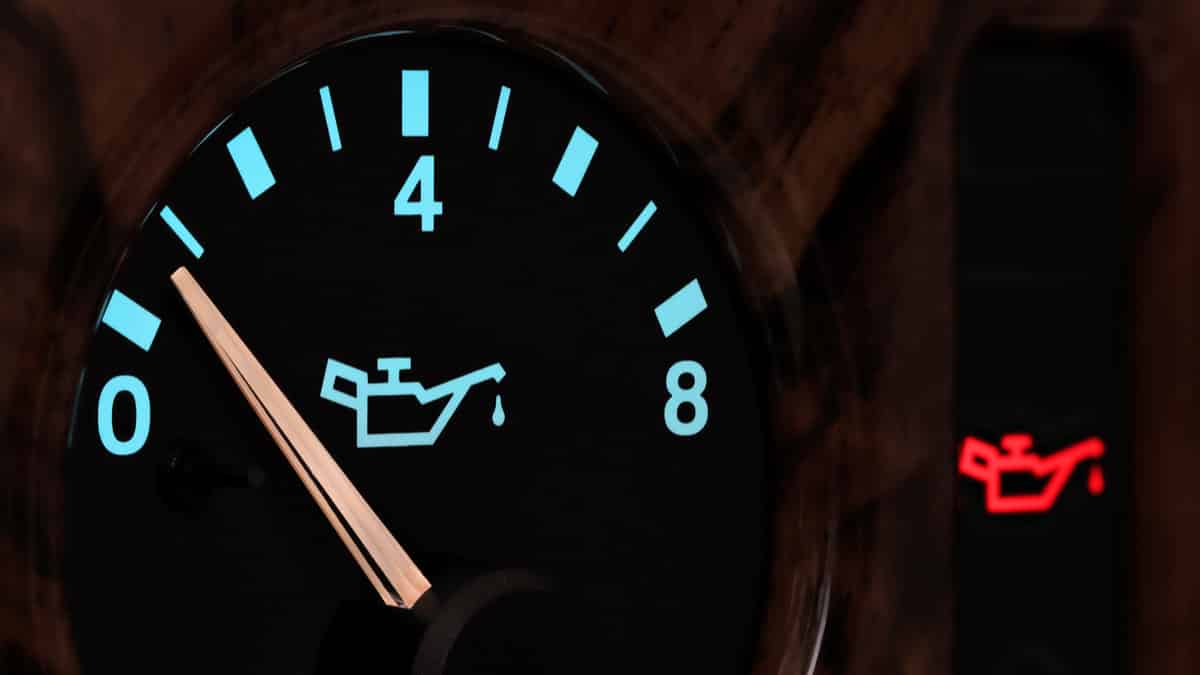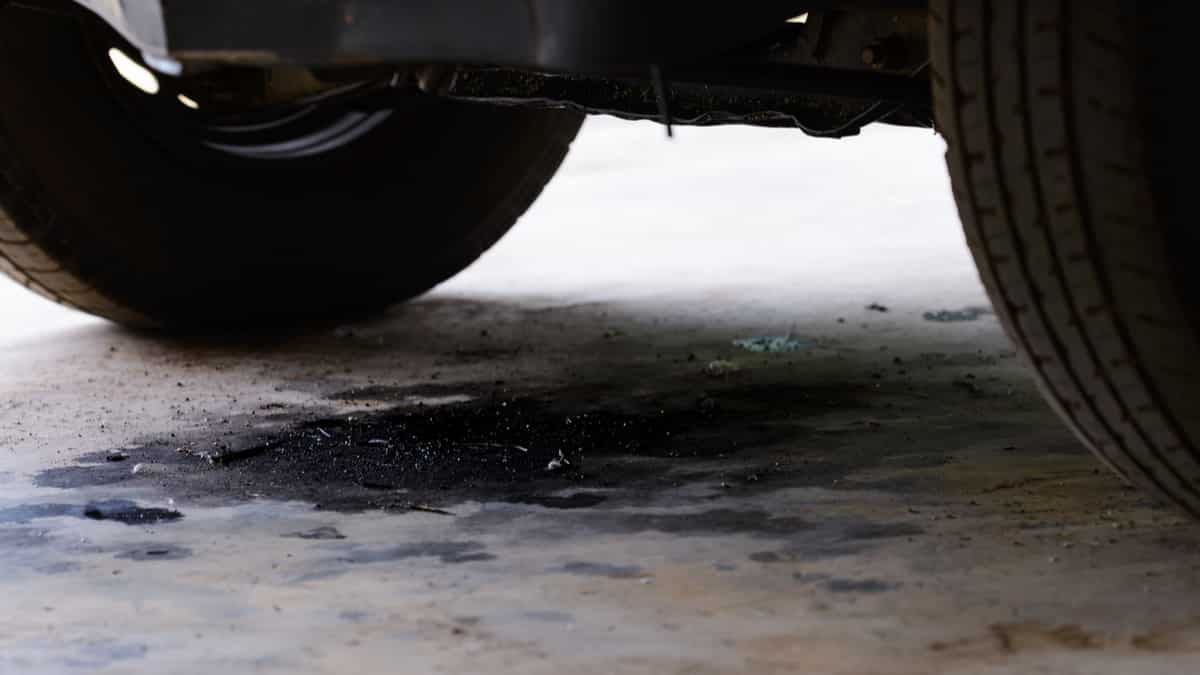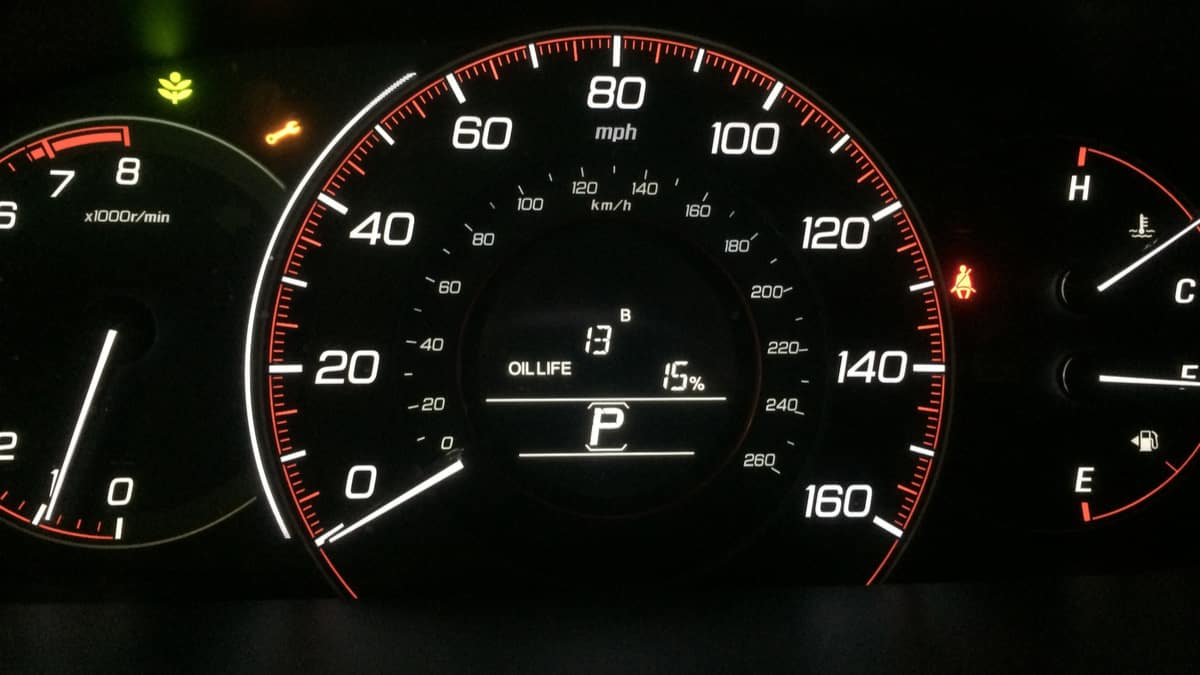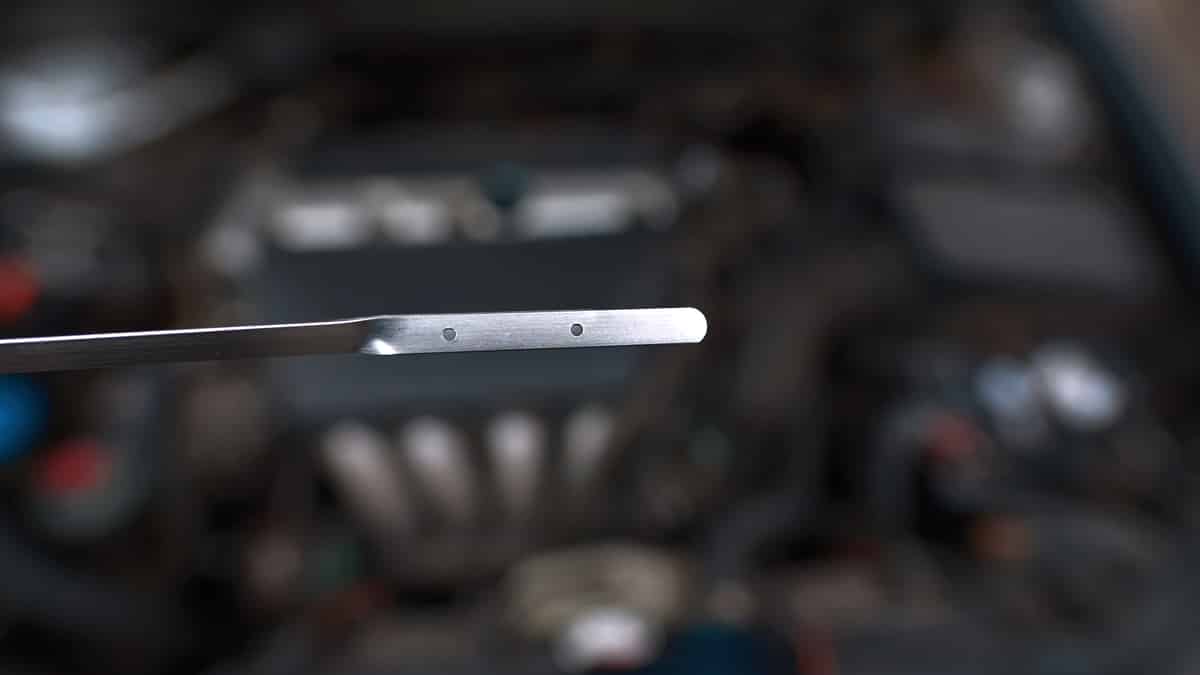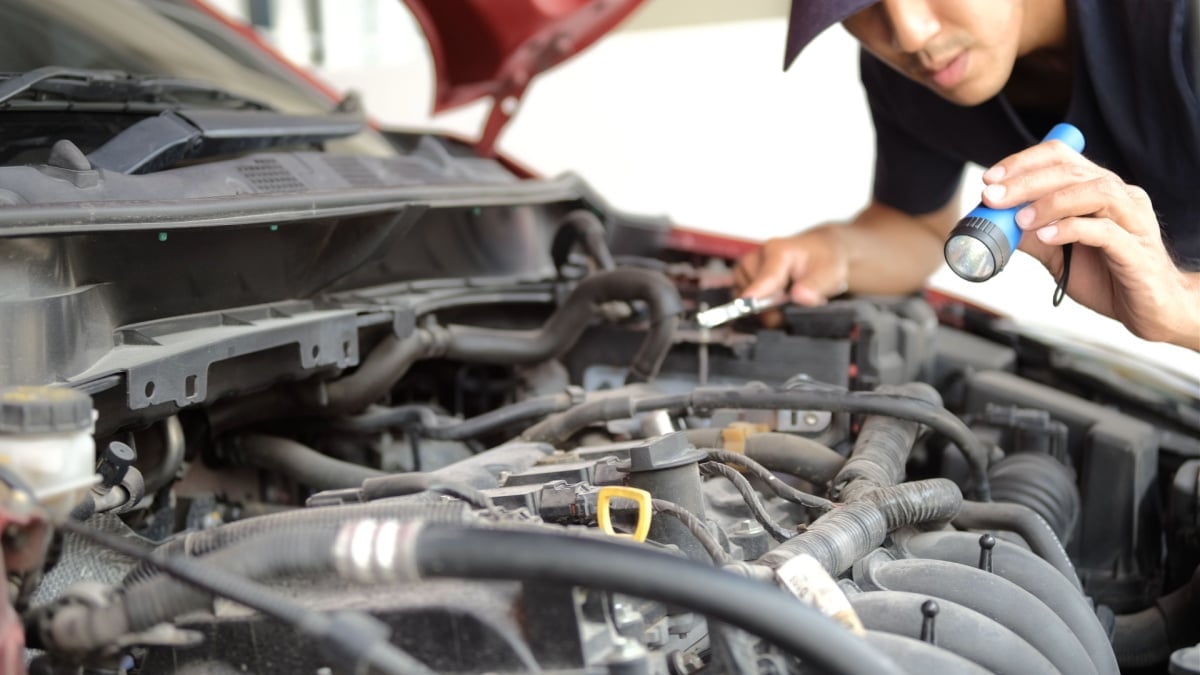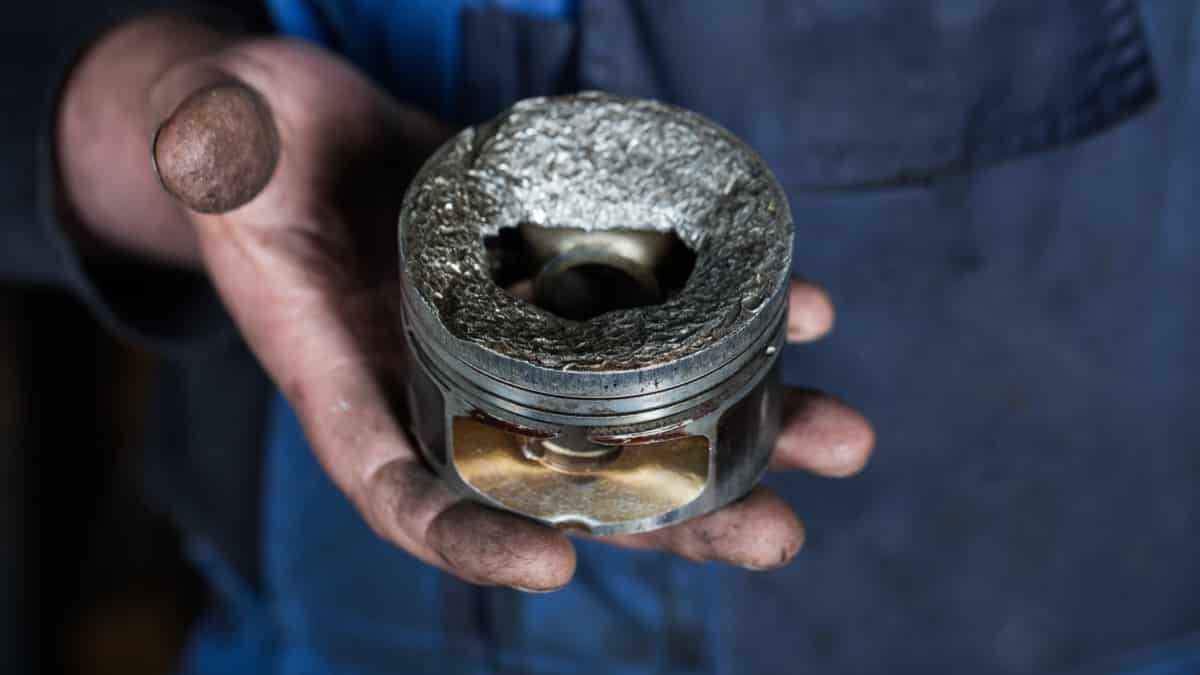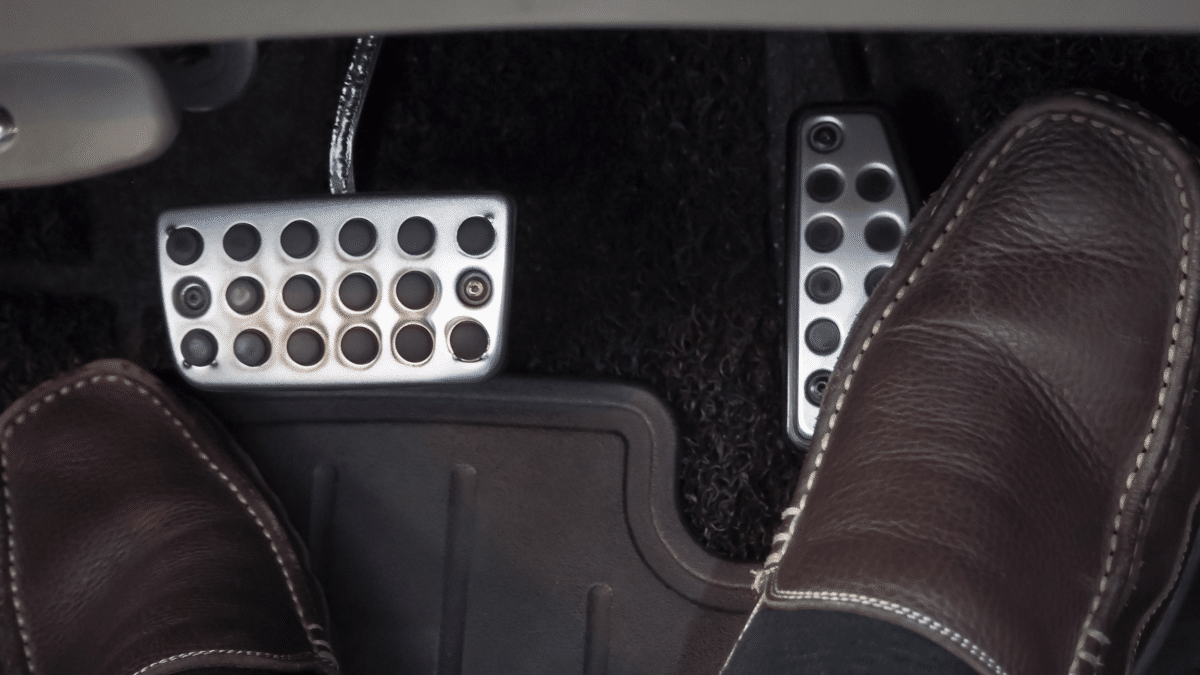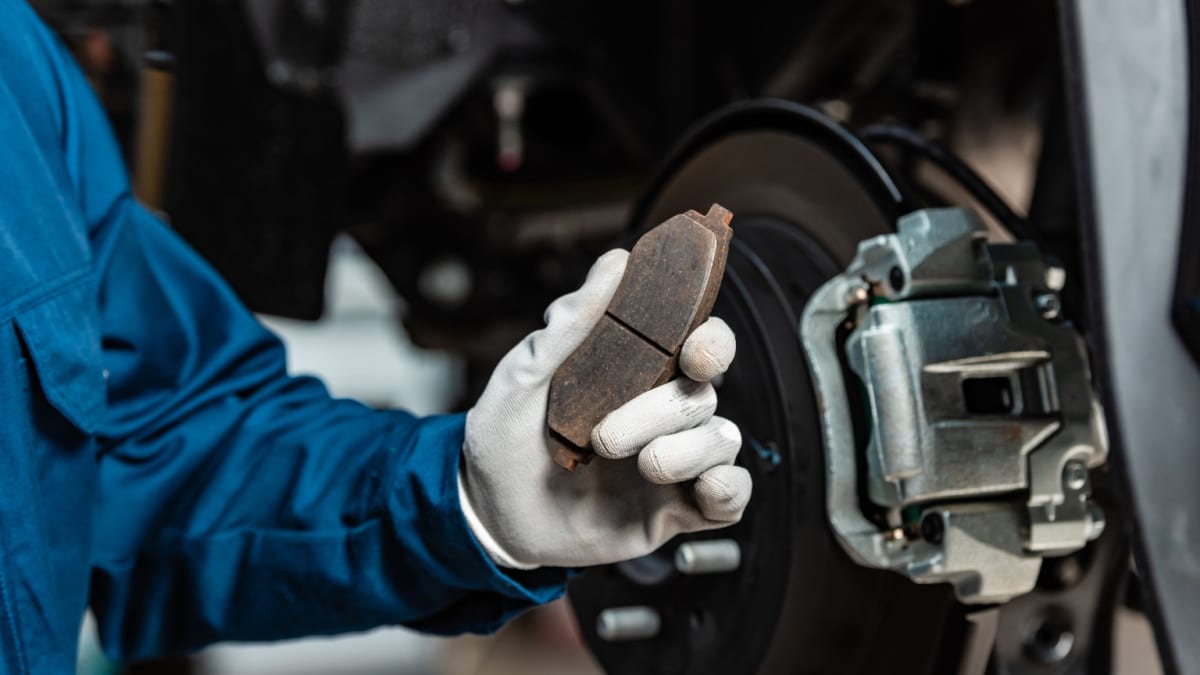You’ve grown accustomed to what your car engine should sound like. Every day that you hit the road, you know what to expect, which is why it can be even more alarming when you hear a knocking sound when accelerating.
In this guide, we cover the main reasons for this unusual engine knock, especially during acceleration. We will also show you what to do about the knocking noise from the engine and answer a few of your top questions.
Reasons For A Knocking Sound When Accelerating
If you hear an engine knocking sound, it could be a detonation knock from low octane fuel, a bad knock sensor, wrong ignition timing or a lean air-fuel mixture. It may also be caused by a low engine oil level, a rod knock, low oil pressure, an exhaust manifold leak, bad tensioners or it’s the drivetrain.
Let’s look closer at these ten possibilities.
1. Low Octane Fuel (Detonation Knock)
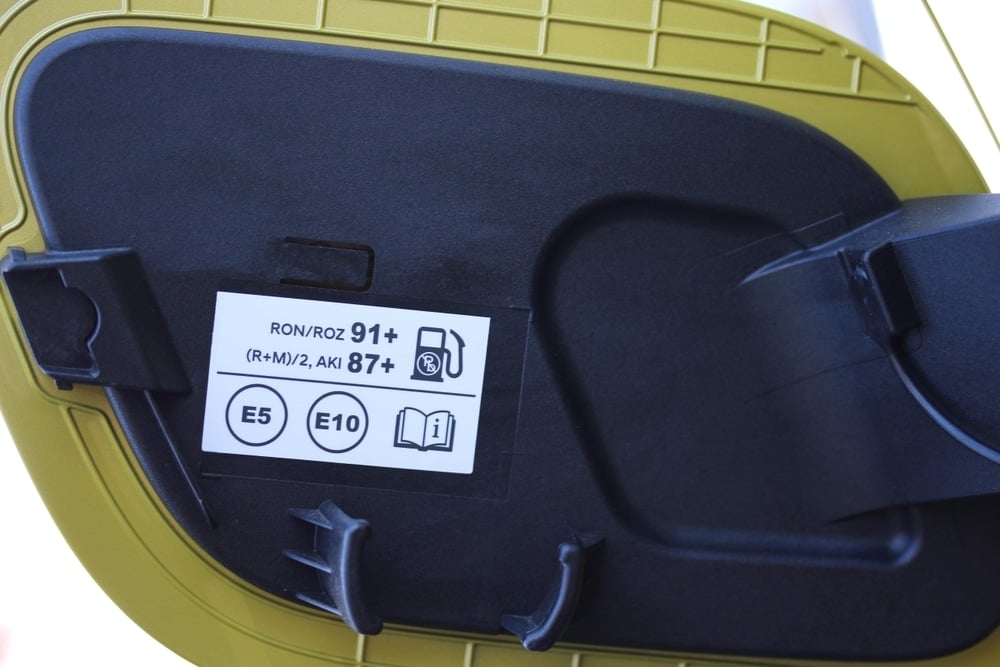
Detonation knock is the most prevalent type of engine knocking. By definition, it’s the knock occurring from the uncontrolled combustion of the gases in the cylinder after the spark and ignition event.
Detonation knock can occur from low octane fuel. Because premium fuel is stable at higher temperatures, it doesn’t cause this problem. Therefore, if your vehicle is supposed to use premium fuel and you downgrade, you may hear this knocking sound. The noise means that the gas is igniting at the wrong time.
2. Bad Knock Sensor (Detonation Knock)
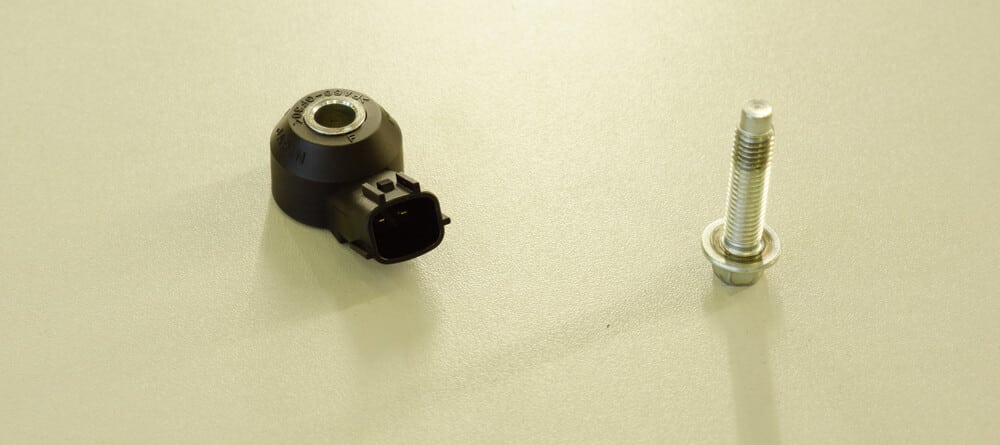
The knock sensor is designed to listen for strange or unusual vibrations from the engine. If something unusual occurs, the sensor tells the electronic control unit (ECU), so adjustments to the timing can be made.
However, this sensor can go bad. When this happens, the Check Engine Light should come on and knocking will occur because fuel is detonating at the wrong time.
3. Wrong Ignition Timing (Detonation Knock)
Today’s cars strategically plan out the timing of the motor. Timing refers to when the spark plugs fire in the cylinders. This entire operation is now run by the computer.
Yet, there are many reasons that the timing could be off. When that happens, detonations can occur at the wrong time in the cylinder, causing the detonation knock.
4. Lean Air-Fuel Mixture (Detonation Knock)
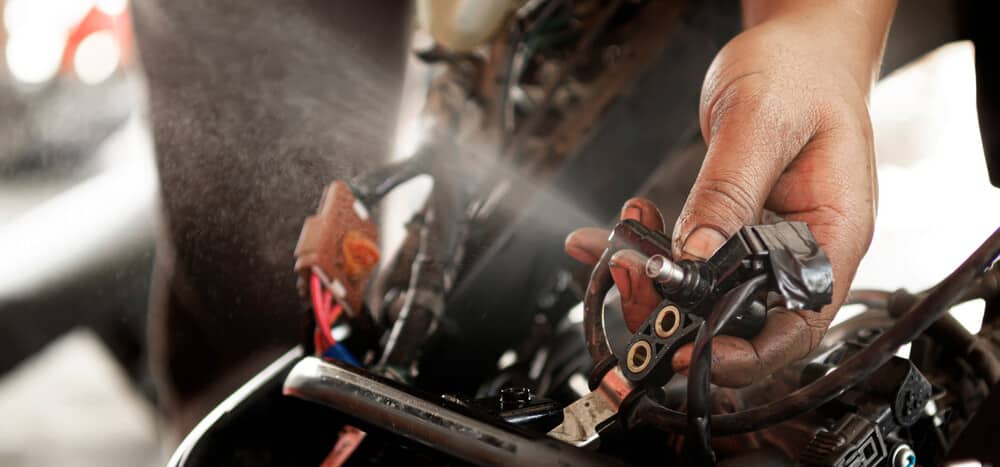
Within the combustion chamber, there’s a perfectly balanced air-fuel ratio to ignite. If that mixture is off-balance because of a mechanical failure, it causes a detonation knock. Most often, the detonation knock has everything to do with there being too much air and not enough fuel, known as lean.
The mixture may be off because of the mass airflow or oxygen sensors. Otherwise, it could be caused by faulty fuel injectors or a failing pump.
RELATED: Engine Running Lean – Causes, Symptoms & Fixes
5. Low Engine Oil Level
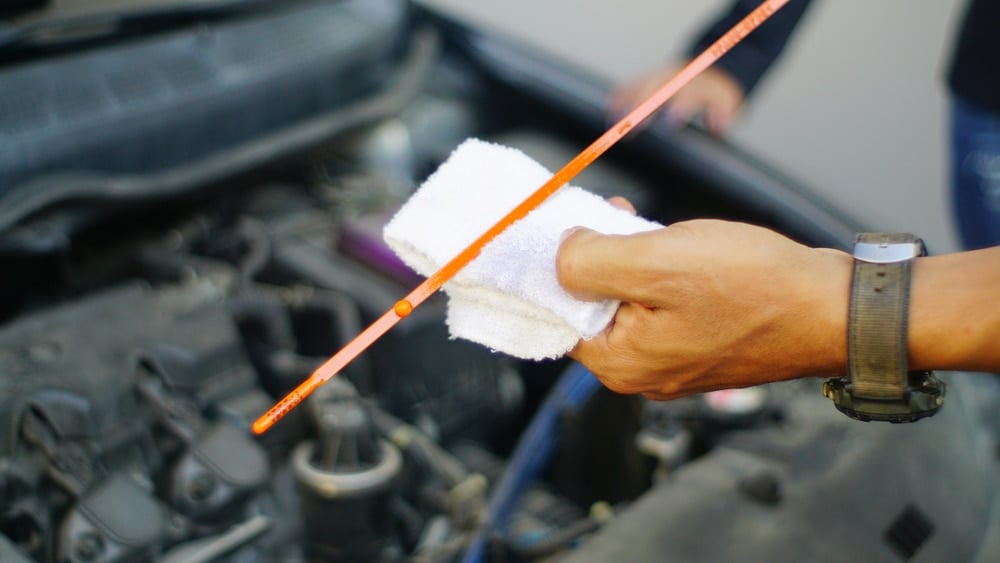
The engine needs a specific amount of oil to run correctly. Motor oil is required for lubricating the metal components so friction doesn’t occur.
When the engine oil runs low from burning too much of it or due to a leak, a knock can occur. You may also get an oil warning light on the dashboard. To protect the engine, you should never drive without enough motor oil.
6. Rod Knock
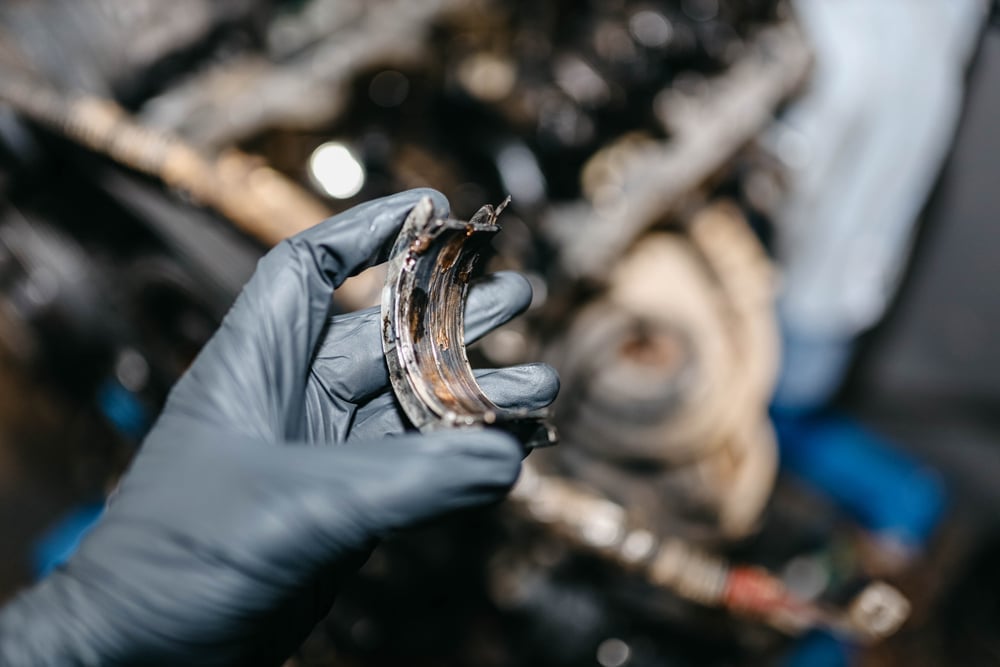
Engine bearings are used to support the moving parts of the motor, such as the crankshaft and connecting rods, allowing for proper rotation. If your engine has worn rod bearings, knocking can occur.
The rods start to tap the crankshaft because of excessive play in the bearings, which is what causes the noise. The only solution is to replace the bearings, which is never an easy job.
7. Low Oil Pressure
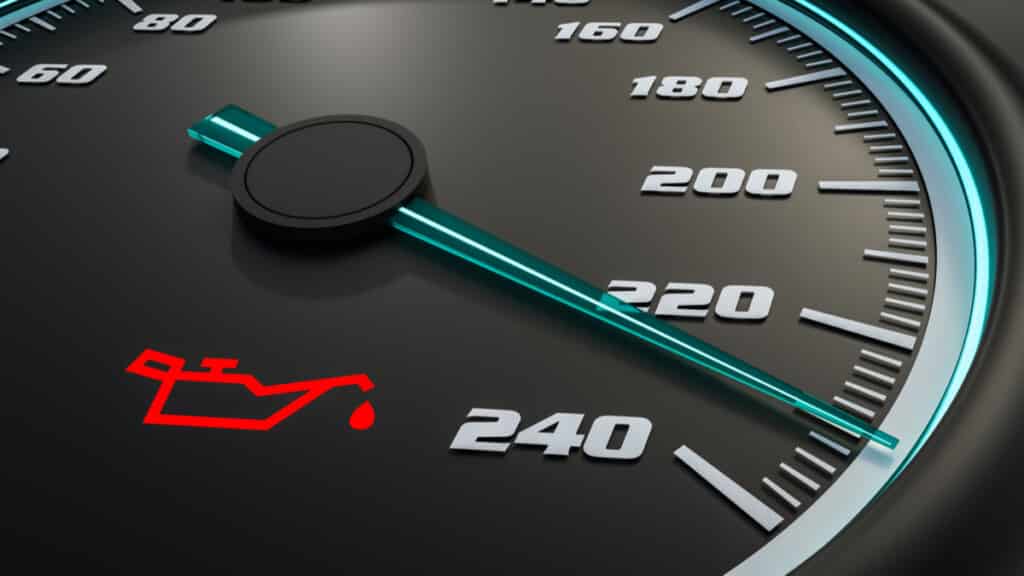
Aside from having low oil, the pressure could also be to blame. Yes, the pressure gets low without oil, but there are other reasons for this fault.
You may be using the wrong engine oil viscosity or the oil pump is failing. The engine may also have an internal failure that’s causing problems.
RELATED: 4 Symptoms Of Low Oil Pressure and Common Causes
8. Exhaust Manifold Leak
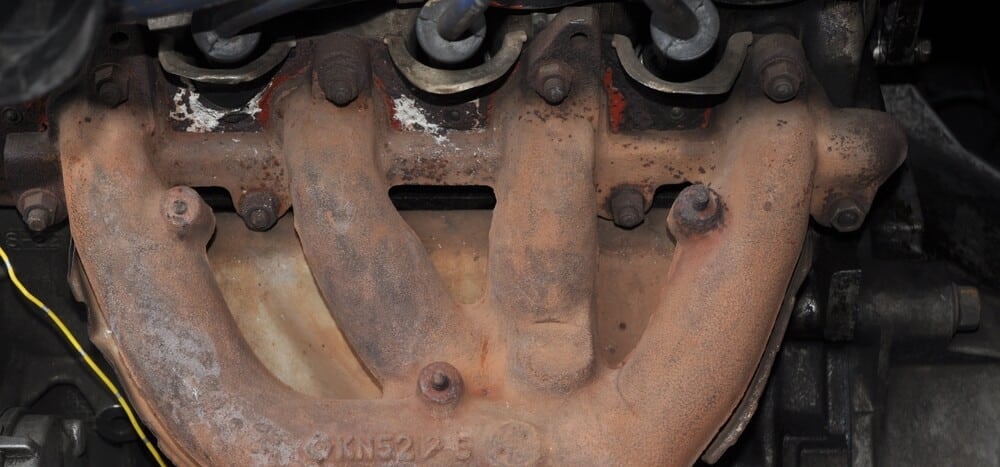
The exhaust manifold bolts to the cylinder head. It’s needed to move the exhaust gases from the engine into the exhaust. There’s a gasket helping to seal the exhaust manifold from leaks.
However, this gasket can fail over time from the heat and wear. When this occurs, a knocking/pulsating sound might happen, plus you could notice trouble accelerating, poor fuel economy and exhaust smells.
9. Bad Belt Tensioners/Pulleys
It’s possible that the knocking sound you hear isn’t coming from the engine but nearby instead. The accessory belt runs on various pulleys and tensioners. The belt must have the right amount of tension at all times to ensure it runs smoothly.
If the belt isn’t held properly because of the pulleys or tensioners, it’s going to cause slapping, clicking or rattling noises that can sound like knocking. If the belt slips off or breaks, you won’t be able to drive anywhere.
10. Drivetrain Knocking
Could it also be possible that the knocking isn’t coming from the engine but is part of the drivetrain instead? Since all of the components are placed close together, it’s possible to confuse the two.
The transmission fluid could be low or old. It could also be caused by sensors or a mount. If nothing else, there might be internal transmission damage leading to the noise.
How To Fix A Knocking Sound When Accelerating
As professional mechanics, we’ve seen our share of engine knocking over the years. With so many possible causes, it’s important to perform an in-depth diagnosis before replacing any parts. Here are some suggestions for you.
1. Scan Codes
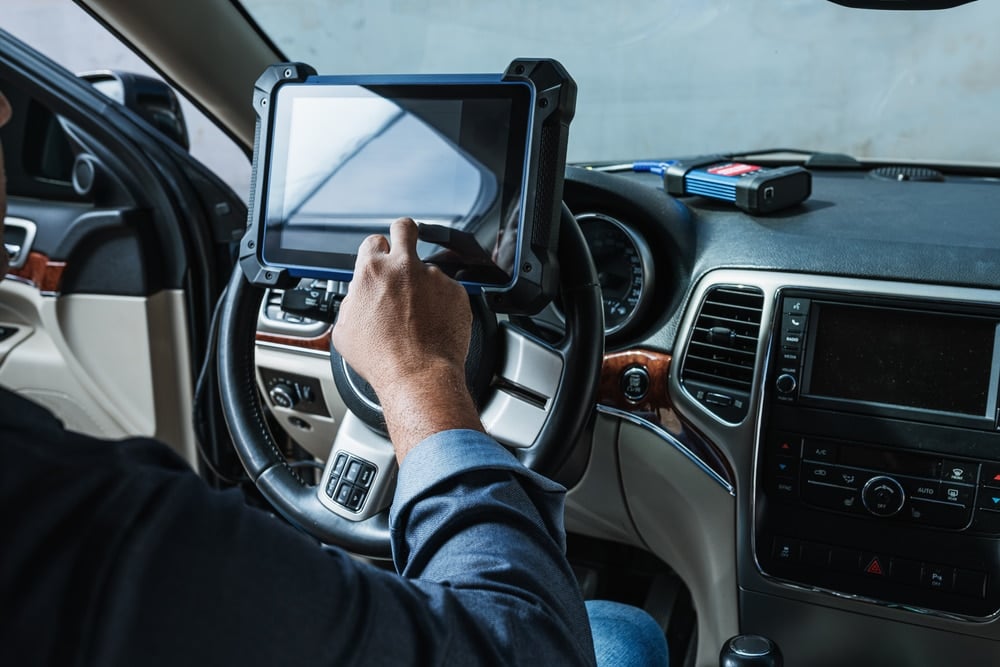
With most of these problems, the Check Engine Light should come on. With the light on, you can read the codes with your compatible scanner. These DTCs should provide more information about what’s going wrong.
If there are too many codes to discern at first, clear them with your scanner and start the car back up. The codes should come back, allowing you to focus on what’s most important right now.
Once you get the codes, use our DTC library to figure out the problem. If you have multiple codes, you may be able to piece them together like a puzzle to figure out what part is bad. Some codes are generic and used with all brands, while others can be manufacturer-specific.
2. Locate Where The Noise Is Coming From
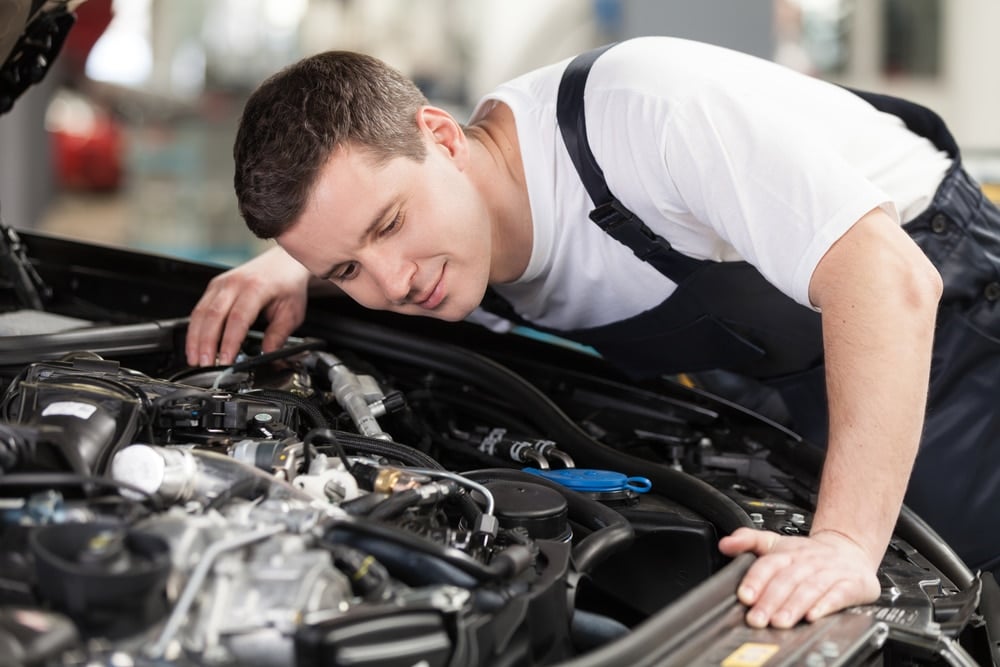
If the codes don’t give you all of the information you need, it’s time to move on to using your detective skills. Consider it a mystery that you have to solve and start listening for the sound. If you can pinpoint the area where the sound originates from, you’ll be able to narrow down the defective part.
To better determine where the sound is coming from, you could employ a friend to help. Sometimes, it is best to have a couple of sets of ears listening for the knock. Just remember not to get too close to any moving engine parts.
3. Perform Engine Maintenance
Whether you are facing a small or large problem, it’s wise to perform regular maintenance at this time. It’s amazing how many problems maintenance can prevent and fix. If you haven’t performed an oil change in a while, you should do that now.
You may also want to change some filters or the spark plugs. Look for your recommended maintenance schedule from your car’s manufacturer to see what you should be doing.
4. Increase Fuel Octane Rating
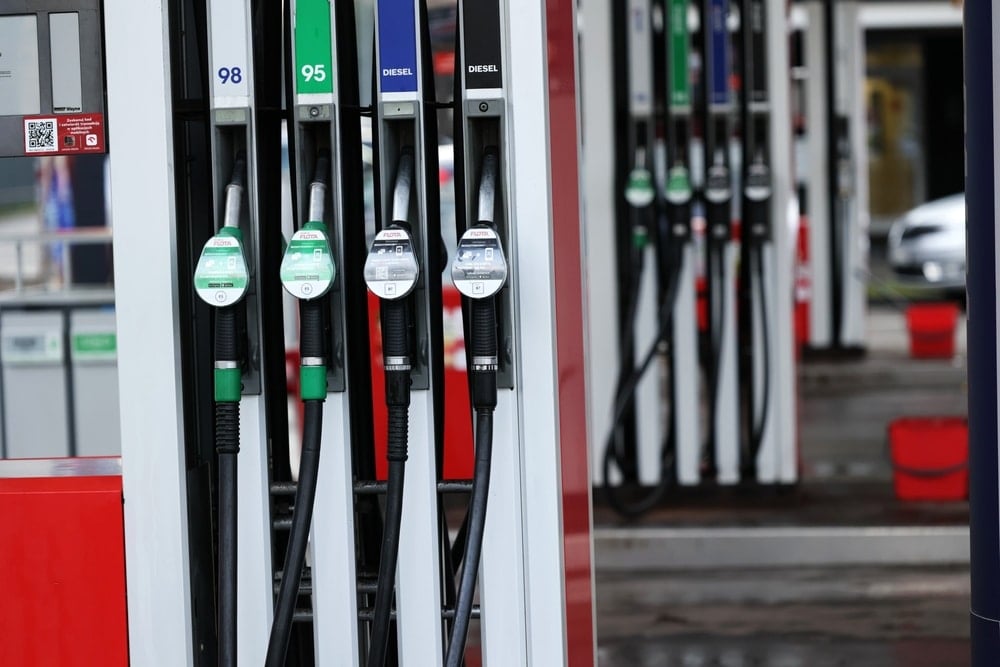
If the wrong fuel could be causing the problem, it may be time to upgrade to premium. You should never use regular unleaded if the manufacturer requires premium.
Additionally, it helps to visit top-tier fuel stations. These fuels are meant to protect the engine better and can be found throughout the country.
5. Visit A Professional
The reality is that dealing with engine knocking can be a troubling problem. Unless you find a simple issue causing the noise, you may be facing some serious concerns. Even for qualified mechanics, some of these problems can be stressful to deal with.
If you don’t have a lot of mechanical knowledge, you should take your car to a professional. After all, car engines are expensive and you don’t want to do anything to cause more damage. Talk to your friends and family to find a reliable mechanic in your area.
Is engine knock serious?
It can be. At best, it could be caused by low octane fuel, low engine oil or a lean air-fuel mixture. However, it can also be poor timing, a bad knock sensor, a rod knock, an exhaust manifold leak, bad tensioners or a drivetrain malfunction, all of which can be expensive to repair.
Can I drive a car with a knocking engine?
We don’t advise driving the car once the noise starts and the Check Engine Light comes on. If you repair the problem immediately, you may be able to avoid permanent motor damage. By driving, you can create bigger problems or become stranded if the engine decides to give out while you are away from home.
How long will a knocking engine last?
It’s impossible to know how long the engine will hold out. However, the longer you drive with a knocking, the more damage will be created. If there’s a simple problem causing the noise, you should have it repaired so that the engine can provide many more miles of service.
Can low oil cause a knocking noise?
Yes, if the oil gets low, it can create a knocking sound. Motor oil is needed to provide lubrication to the internal metal components. Without this oil, the metal parts rub together and grind. As the components try to move, you may hear knocking that should get your attention. Fill up the oil before you ruin the motor.
Why is my car knocking when I go over bumps?
If you tend to hear the knocking more often when hitting a bump, there may not be an engine problem. Instead, there could be something wrong with the drivetrain or suspension. It’s important to examine the entire vehicle to see where the noise is coming from and have it fixed immediately.
You are smart to listen closely to the engine and pay attention to any strange sounds, especially knocking. There’s no time to waste once the knocking sound starts. Your quick attention can help you save the engine from destruction.
We recommend having someone check the car over if you aren’t sure what you are looking at. The problem may be something as small as needing an oil change or there could be a serious malfunction. Either way, you need to know what you are looking at to make a good decision. Ignorance is not the answer in this situation.
Categories: Troubleshooting

